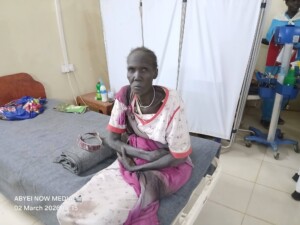Bill allows Saudi Arabia to cultivate Sudan lands
The Sudanese parliament approved a bill that allows Saudi Arabia to reform and cultivate more than a million acres of land in eastern Sudan. The agreement has sparked criticism from the Nubian society in Sudan.
The Sudanese parliament approved a bill that allows Saudi Arabia to reform and cultivate more than a million acres of land in eastern Sudan. The agreement has sparked criticism from the Nubian society in Sudan.
Sudan will lease the one million feddan* in the north-eastern area of the Upper Atbara and Setit dams to Saudi Arabia for a period of 99 years. (*One feddan is equivalent to 1.038 acres or 0.42 hectares). The decision follows the National Assembly's approval of the framework agreement with Saudi Arabia.
According to the bill approved on Monday, Saudi Arabia would invest $10 billion in the first 10-year phase to build the infrastructure before moving to the next phase that involves land reformation. For this the investors have the right to use the dams' water to irrigate the land.
The Nubian Association against Dams has criticised the parliament’s decision, describing the investment law as a colonial one.
On Monday, the head of the association told Radio Dabanga that they do not oppose the investment. “But we are against the investment that amounts up to the stage of colonialism and against the disregard of the local communities’ rights.”
The head of the association, speaking on the term of anonymity, further said that the Saudi-Sudanese framework agreement was “intended to finance the Dal, Kajbar, and El Shireig dams by farming a million acres in the Upper Atbara River and El Siteit.
“However, the protests and memoranda we launched against this deal forced them to stop investment in these areas.”
'The approved law deprives whole generations in these areas of their right to benefit from the natural resources.'
He explained that Saudi Arabia's agricultural investment focuses on the cultivation of forage area, “without doing real cultivation in the interest of the Sudanese communities”. He pointed to the risk of a shortage of water resources in the coming years following the increased cultivation.
Upper Atbara and Seteet dams are funded by financial institutions in the Gulf. The combined generation capacity of the two new dams will be 320 megawatts, and provide irrigation water sufficient to cultivate one million feddan.











 and then
and then